Bailey Padgett, tennis player and sophomore, achieved her high goal of winning the State Championship for the first time last year. As she celebrated with her fellow tennis players after match point, she said it was a surreal moment, an unbelievable feeling.
Still, with seven total State Championships among the various athletics teams at Carmel this year, that feeling isn’t unique. What makes Padgett different is, when her team won, Padgett was only a freshman.
With a school of over 4,500 students, each sport has a wide selection of players from which to choose. Most varsity coaches place seniors on the varsity team first, then juniors and then sophomores and freshmen that are deemed to be capable. In Padgett’s case, however, she played number-one singles as a freshman.
Now, it is the climax of Padgett’s sophomore tennis season, and she said she is hoping to find herself in the same position she was last year.
Padgett isn’t the only underclassman to exhibit her skills at the varsity level, though.
Kyle Fiala, baseball player and junior, is in the same situation. Fiala started on the varsity baseball team as a sophomore and contributed to its season just as much as other varsity players.

But along with being a major contributor on a varsity team comes responsibility. Despite their ages, Fiala and Padgett said they both must show other players leadership and confidence to establish that they deserve to play at the varsity level.
Fiala said, “I play a position that you have to be a leader. It comes with playing on the team and looking up to kids.”
Fiala is the starting shortstop of the varsity baseball team, which is a position that upholds responsibilities of calling people off and being the head of the infield.
“You have to control the infield,” Fiala said. “You have to tell the other players what to do in situations.”
Andrew Havill, varsity golfer and junior, also has a role of leadership. Havill played varsity golf as a freshman and sophomore. Currently in his third year on the varsity squad, Havill said he has begun to be a leader for underclassmen.
Havill said he learned about how to lead others from seniors who have helped him through prior seasons.
“I try to help (my teammates) if they need help. I somewhat know what I’m talking about as far as the golf swing. Sometimes my dad gives advice,” Havill said. Havill’s father is a professional golfer with much experience regarding teaching others.
Chad Carr, men’s golf Head Coach, said via email, “(Havill) is definitely a leader and gladly helps players with various aspects of golf, whether it be a swing flaw or course management decision.”
Carr said leadership is all about skill level, work ethic and a positive attitude.
“Every team needs a strong leader. They don’t always have to be vocal but can lead by example,” Carr said. “Other team members who aren’t as strong of a player will feed off of this leadership and step up their own game.”
However, leadership skills are not universal, each sport requires specific actions. As Carr said, leadership in golf is directed by example and is personal. In tennis, leadership mostly takes the form of support and doesn’t always include instruction, according to Padgett.
Padgett said, “I usually don’t give advice. During matches we yell encouragement. The seniors make the best leaders, though. In regard to coaches, we leave the advice to them.”
Havill said he agreed with Padgett. “A leader is someone who shows hard work ethic and encourages the other players,” he said.
As for baseball, leadership comes as players progress. Fiala said leaders are defined by their position, but anybody can be a leader if they possess the qualities that allow the team to succeed. Golf and tennis are both individual sports with a team aspect while baseball requires everybody to be on the same page.
According to Fiala, it is rare at Carmel to have underclassmen on the varsity team, which makes these players unique. Along with having the skills to play at the varsity level, these players must be good peers to players in their grade and younger.
Fiala said, “We must show people we can win as a team, especially the young kids. We are a school that always wins. We shouldn’t be a school that loses.”

Pressure also varies among underclassmen athletes. Some are able to handle the pressure of leadership better after they have had the opportunity of playing a whole year on a varsity team, but it can be overwhelming to anybody.
Padgett said, “I played (number-one) singles all middle school, so it wasn’t different playing the role. High school is just more intense.”
The intensity and speed of play is the biggest difference between varsity and junior varsity, according to Fiala. Fiala played junior varsity as a freshman and said his progression to varsity was a major shock.
“The speed of play on the varsity level is a lot faster. You think you have time to make the play at first, but before you know it, the runner’s at first,” Fiala said.
In golf, the player controls the speed of play, but speed is still one of the most important aspects in golf, according to Carr. Carr said seniors Brady Sharkey and Charlie Browning are also good leaders, along with Havill.
“They both lead with a positive attitude and steady golf play. They don’t get too rattled on the course under stressful conditions,” Carr said.
In all sports, leadership can be defined several ways. As underclassmen continue to contribute at Carmel, the expectations will get higher. As long as athletes have the right skill level, work ethic and positive attitude, they belong on the varsity level, according to Carr.
Carr said, “Leadership isn’t defined by age, but by action and attitude.”
















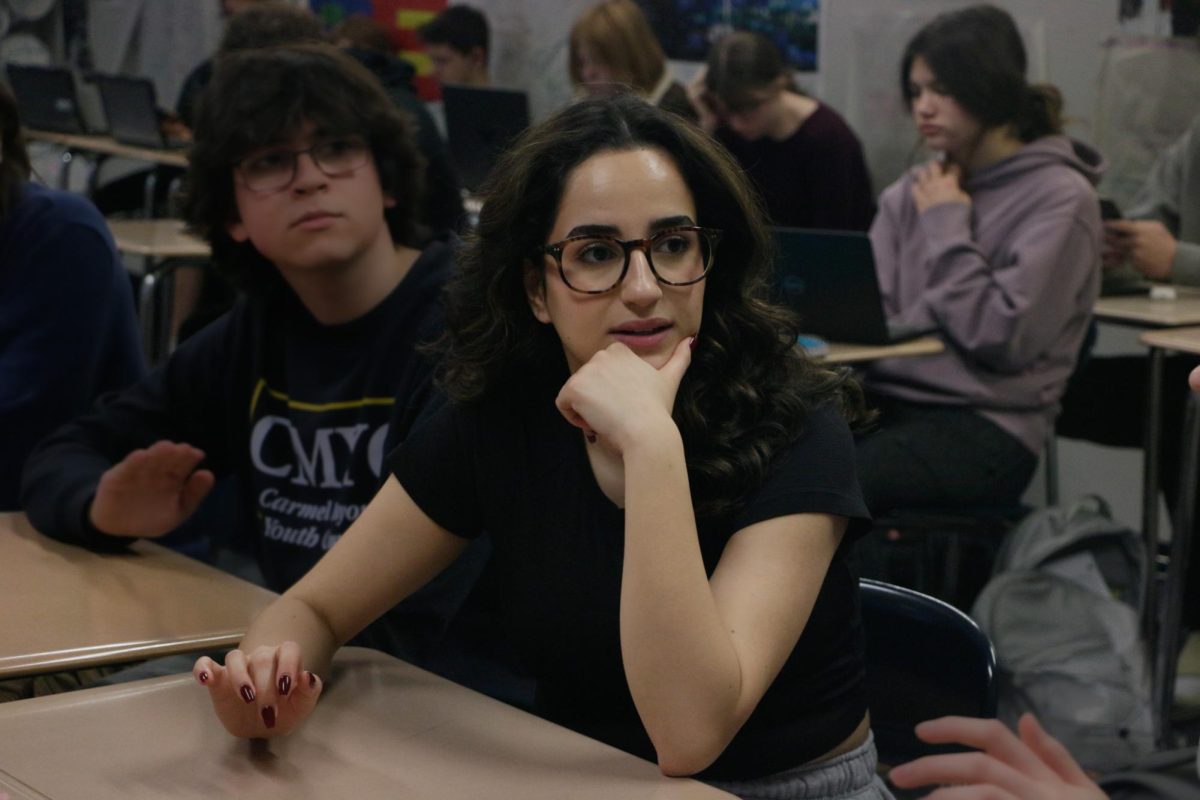

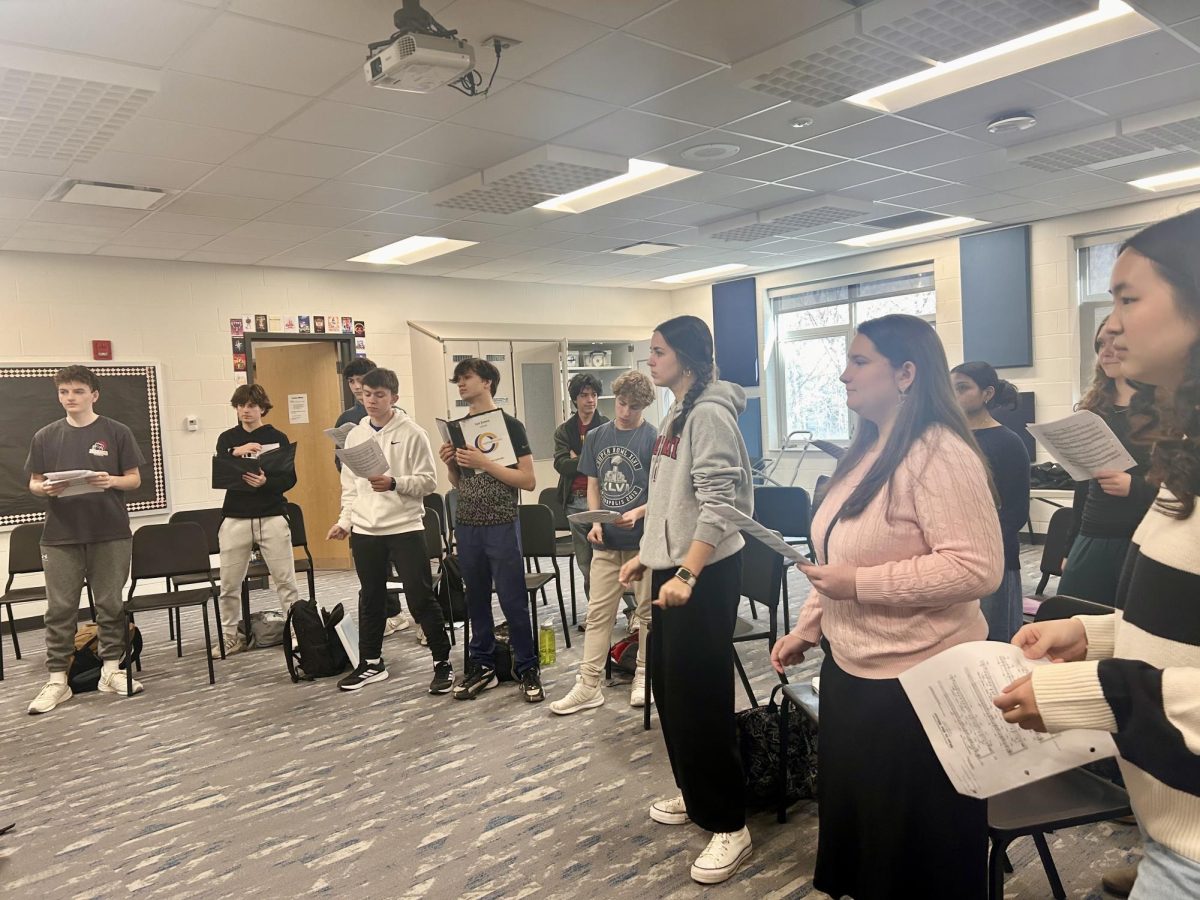

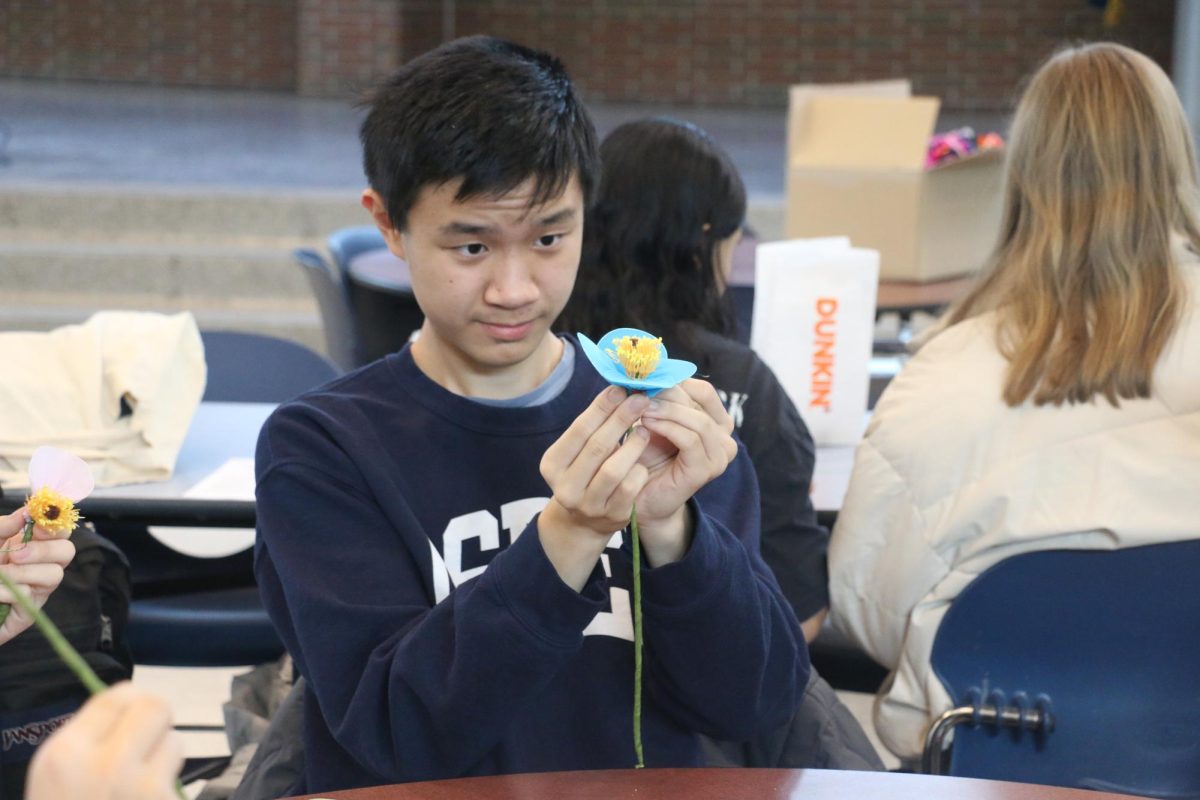




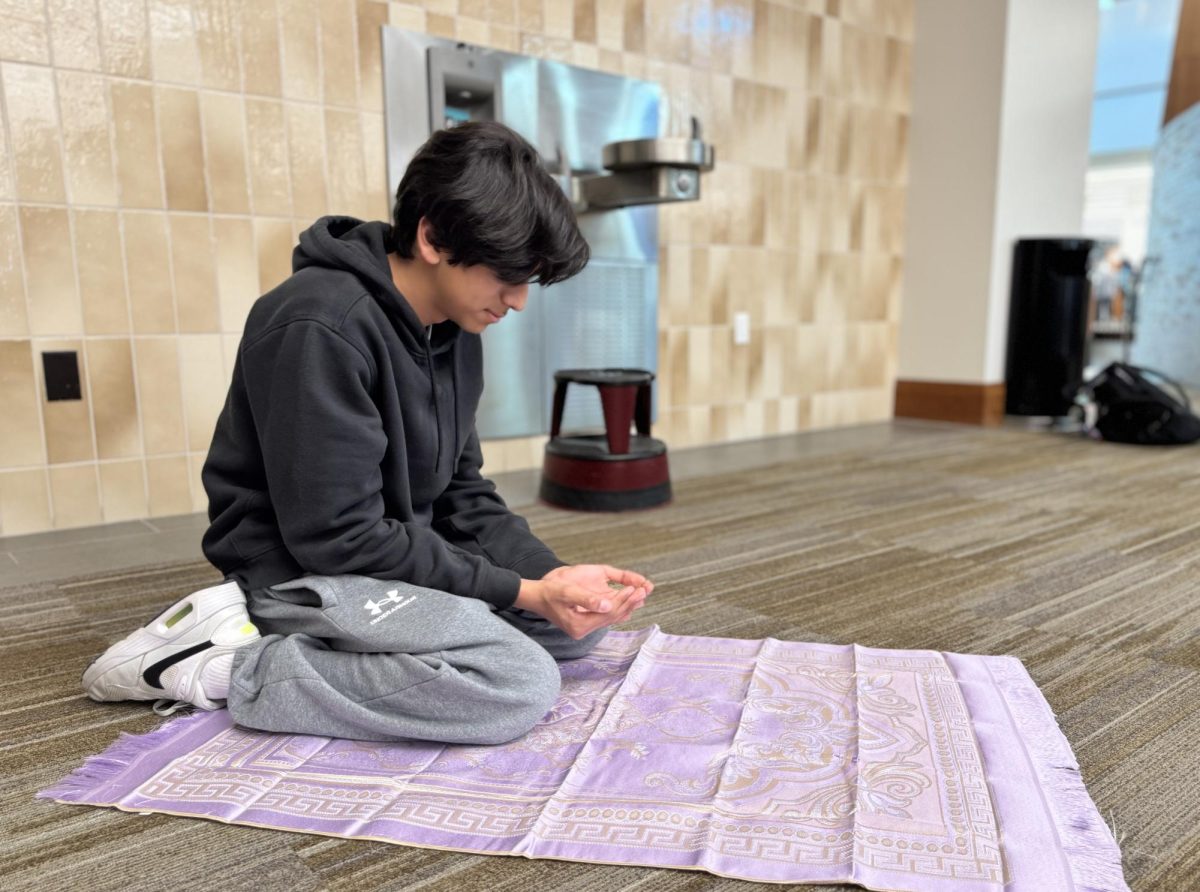





![AI in films like "The Brutalist" is convenient, but shouldn’t take priority [opinion]](https://hilite.org/wp-content/uploads/2025/02/catherine-cover-1200x471.jpg)


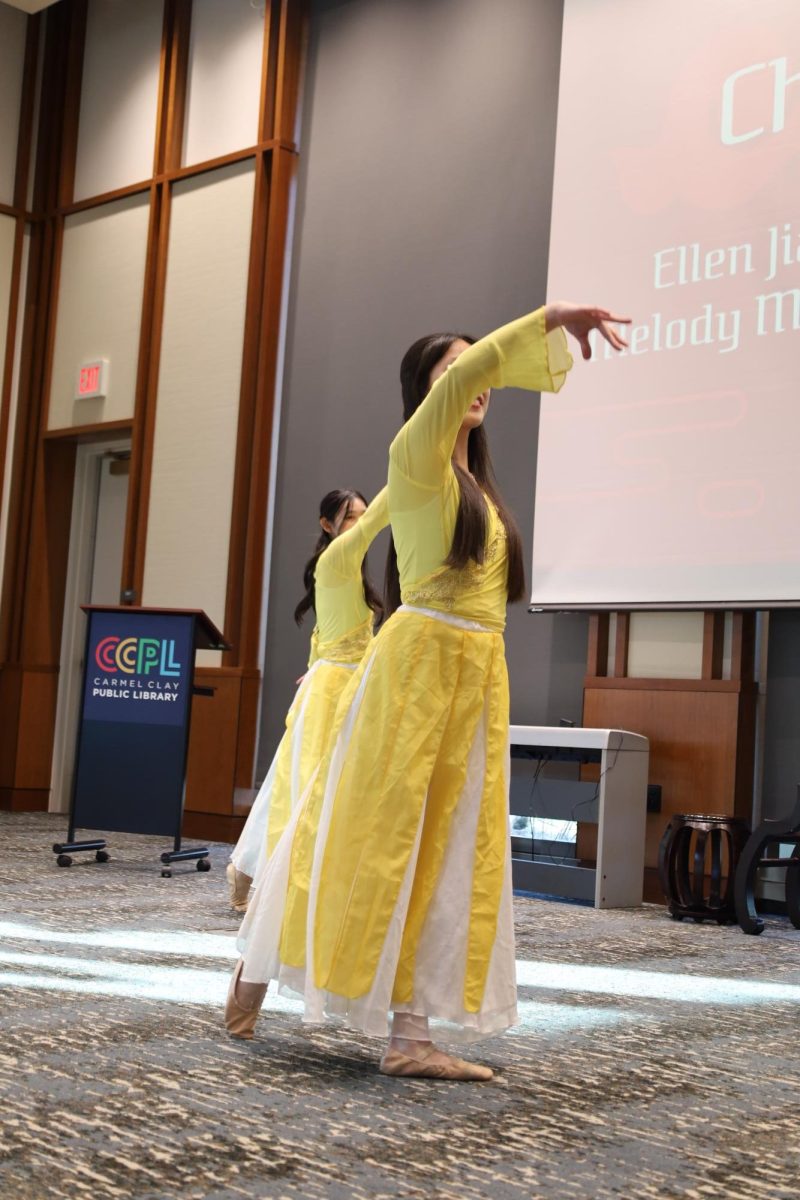










































![Review: “The Immortal Soul Salvage Yard:” A criminally underrated poetry collection [MUSE]](https://hilite.org/wp-content/uploads/2025/03/71cju6TvqmL._AC_UF10001000_QL80_.jpg)
![Review: "Dog Man" is Unapologetically Chaotic [MUSE]](https://hilite.org/wp-content/uploads/2025/03/dogman-1200x700.jpg)
![Review: "Ne Zha 2": The WeChat family reunion I didn’t know I needed [MUSE]](https://hilite.org/wp-content/uploads/2025/03/unnamed-4.png)
![Review in Print: Maripaz Villar brings a delightfully unique style to the world of WEBTOON [MUSE]](https://hilite.org/wp-content/uploads/2023/12/maripazcover-1200x960.jpg)
![Review: “The Sword of Kaigen” is a masterpiece [MUSE]](https://hilite.org/wp-content/uploads/2023/11/Screenshot-2023-11-26-201051.png)
![Review: Gateron Oil Kings, great linear switches, okay price [MUSE]](https://hilite.org/wp-content/uploads/2023/11/Screenshot-2023-11-26-200553.png)
![Review: “A Haunting in Venice” is a significant improvement from other Agatha Christie adaptations [MUSE]](https://hilite.org/wp-content/uploads/2023/11/e7ee2938a6d422669771bce6d8088521.jpg)
![Review: A Thanksgiving story from elementary school, still just as interesting [MUSE]](https://hilite.org/wp-content/uploads/2023/11/Screenshot-2023-11-26-195514-987x1200.png)
![Review: "When I Fly Towards You", cute, uplifting youth drama [MUSE]](https://hilite.org/wp-content/uploads/2023/09/When-I-Fly-Towards-You-Chinese-drama.png)
![Postcards from Muse: Hawaii Travel Diary [MUSE]](https://hilite.org/wp-content/uploads/2023/09/My-project-1-1200x1200.jpg)
![Review: "Ladybug & Cat Noir: The Movie," departure from original show [MUSE]](https://hilite.org/wp-content/uploads/2023/09/Ladybug__Cat_Noir_-_The_Movie_poster.jpg)
![Review in Print: "Hidden Love" is the cute, uplifting drama everyone needs [MUSE]](https://hilite.org/wp-content/uploads/2023/09/hiddenlovecover-e1693597208225-1030x1200.png)
![Review in Print: "Heartstopper" is the heartwarming queer romance we all need [MUSE]](https://hilite.org/wp-content/uploads/2023/08/museheartstoppercover-1200x654.png)

